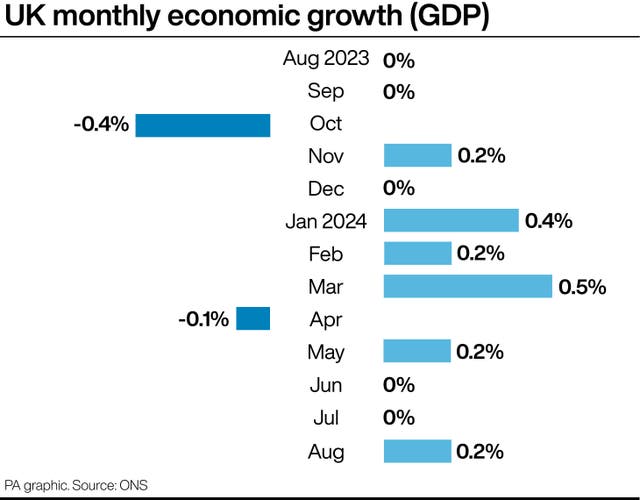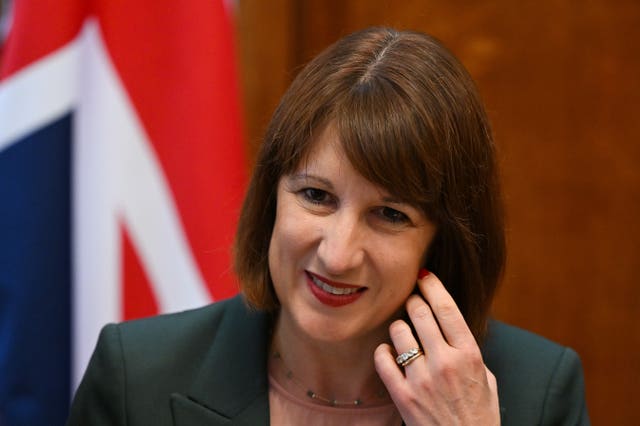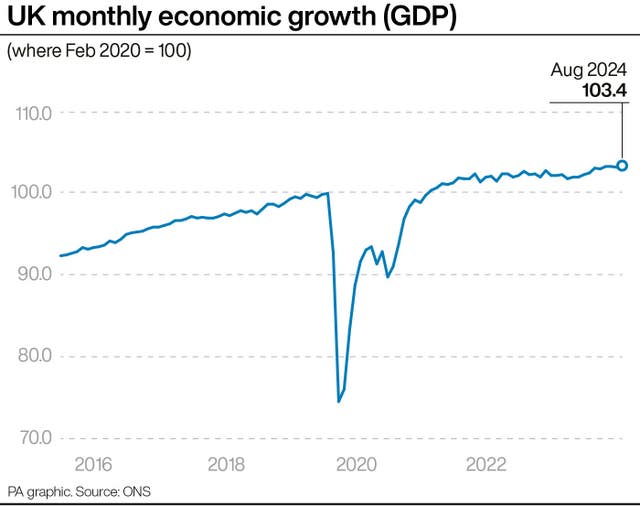Economy grows in August after two flat months, in boost for Reeves
The Office for National Statistics said gross domestic product (GDP) grew 0.2% in August, as the Chancellor prepares for the upcoming Budget.

The UK economy grew in August after it was flat in the previous two months, according to the latest official figures, in a boost for Chancellor Rachel Reeves ahead of the Budget later this month.
The Office for National Statistics (ONS) said gross domestic product (GDP) recorded 0.2% growth in August, up from no growth in June or July.
It was in line with economist predictions but will provide some relief to Ms Reeves, after the period of economic flatlining since the election.
Ms Reeves said the figures were “welcome news”, adding that economic growth was the “number one priority of this Government so we can fix the NHS, rebuild Britain, and make working people better off”.
“While change will not happen overnight, we are not wasting any time on delivering on the promise of change,” she said.
Ms Reeves has warned the Budget will feature “tough decisions” from the Government, prompting concern among business and consumer groups about what might be included.
The figures also come ahead of a Government-hosted business summit in London next week, designed to attract more foreign direct investment into the UK.

ONS director of economic statistics Liz McKeown said: “All main sectors of the economy grew in August, but the broader picture is one of slowing growth in recent months, compared to the first half of the year.
“In August, accountancy, retail and many manufacturers had strong months while construction also recovered from July’s contraction.
“These were partially offset by falls in wholesaling and oil extraction.”
The services sector was the main contributor to growth, up 0.1% in August after a similar rise in July.
Meanwhile, the smaller production sector swung to 0.5% growth after a 0.7% contraction in July, revised from a 0.8% estimate in last month’s figures.

Construction output grew by 0.4% in August, following an unrevised fall of 0.4% in July, and grew by 1% in the three months to August 2024.
Bank of England rate setters are next set to meet in November, where most economists have predicted another quarter-point rate cut.
However, Suren Thiru, economics director at the Institute of Chartered Accountants in England and Wales, said the positive GDP figure means a rate cut is not yet certain.
“While interest rates are still likely to fall in November, these positive figures mean it’s not quite a done deal by giving the more hawkish rate setters enough encouragement over economic conditions to hold off voting to relax policy.”

Luke Bartholomew, deputy chief economist at asset manager Abrdn, added: “After a strong performance over the first half of the year, the economy was always likely to slow somewhat over the second half.
“But the worry is that speculation about the upcoming Budget will cause an even more pronounced slowdown.
“These figures confirm a reassuring rally in output, as easing inflation and better weather helped return the economy to growth by reviving activity in key sectors, including retail and manufacturing.





